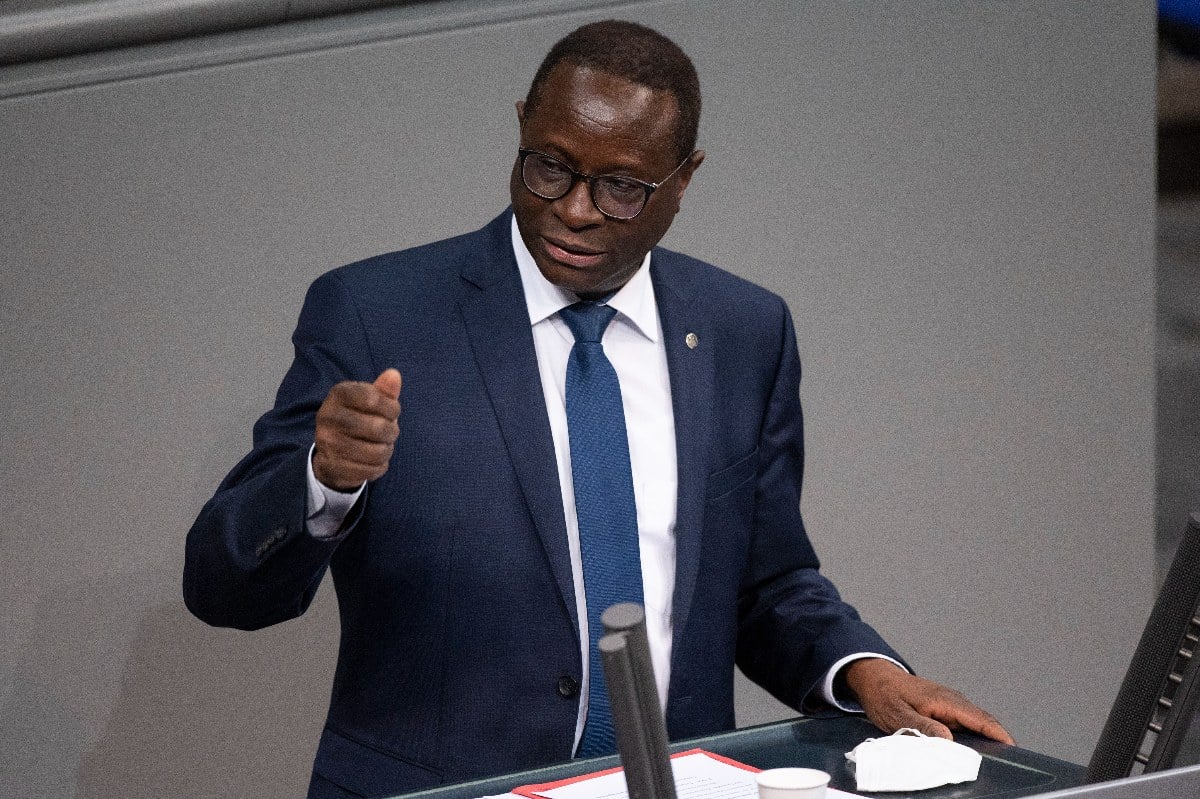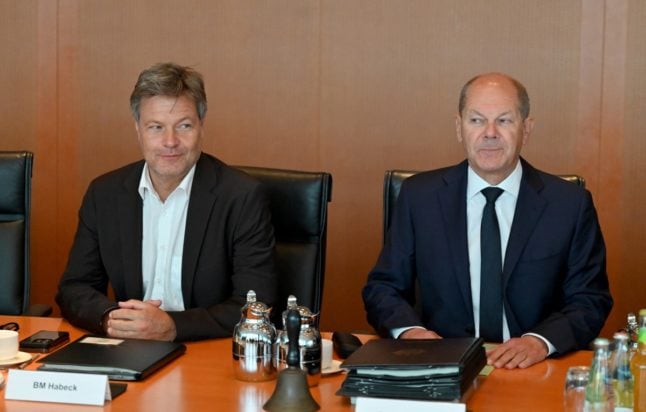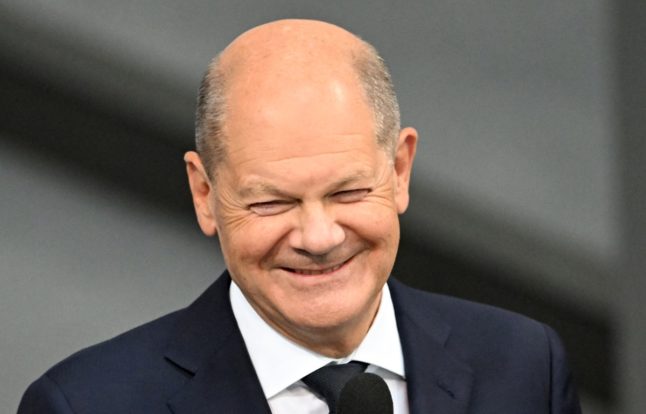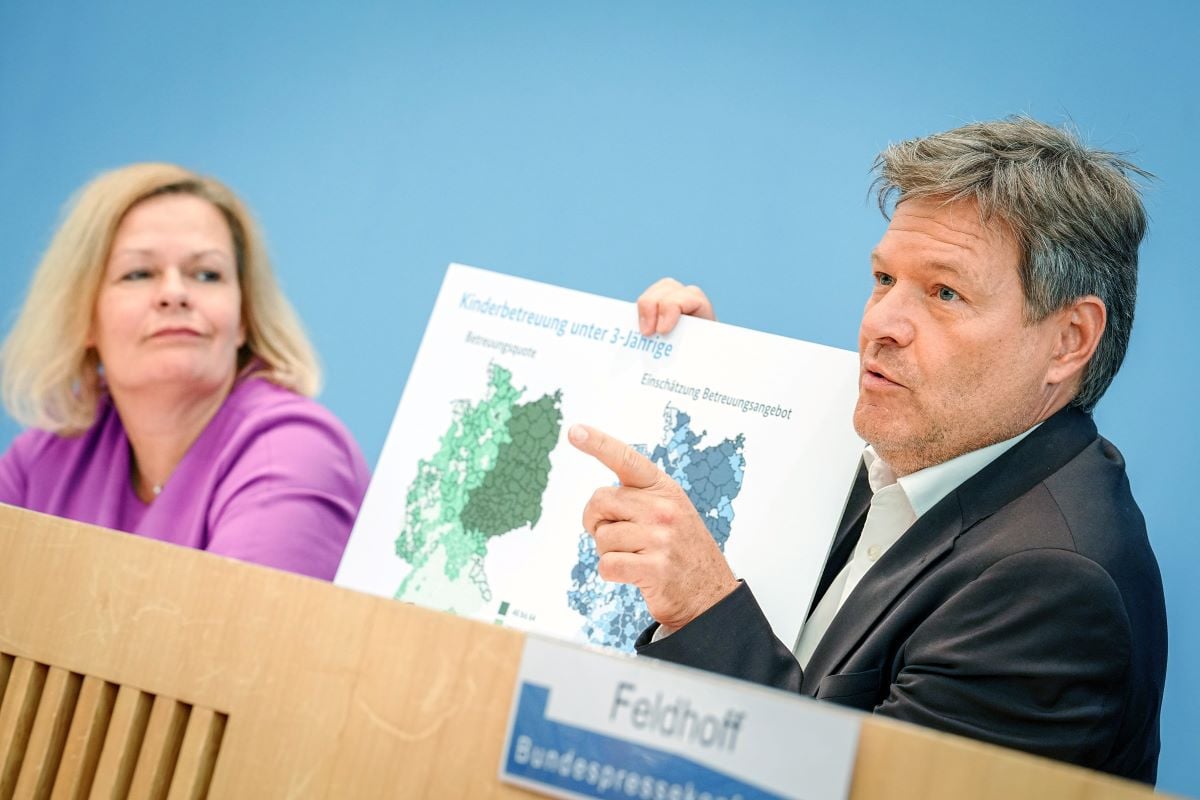Pressure mounts on German government to make budget decision
Germany’s traffic light coalition is still scrambling to agree on its 2025 budget, which was originally due to be signed into law by July 4th.
As that deadline has now been missed, the government, made up of the Social Democrats, Greens and Free Democrats, is aiming for a new deadline of July 17th.
To reach this date, however, they need to decide on an outline in the next few days, as drafting the budget law usually takes around 10 more days. Negotiations are expected to continue into the night on Thursday if necessary.
This week, the majority SPD party has increased the pressure on its coalition partners to make a decision. The parliamentary group wants clarity on the government’s budget plans by Friday and scheduled a special meeting for 7am.
The FDP, however, has said it does not want to be rushed into a result. “
When it comes to the federal budget, thoroughness and a good result come first, because in the end, the overall package has to be right,” FDP Secretary General Bijan Djir-Sarai told DPA.
READ ALSO: What the shock defection of a Greens MP to the CDU tells us about German politics
Germany’s first African-born MP Karamba Diaby set to step down
Karamba Diaby, of the Social Democrats, said he will not run for the Bundestag again after the current legislative period comes to an end.
The Halle-based politician, who made history when he entered parliament in 2013 as the first African-born Black MP in Germany, said he made the decision so he can spend more time with family. He said the move came “after months of consideration and deliberation”.
He thanked his party and highlighted past achievements such as the introduction of a statutory minimum wage, the Skilled Immigration Act and the modernisation of citizenship law. Most recently, he had campaigned for political initiatives to integrate African countries and for allotment gardens.
Diaby faced a number of racist attacks and hate speech against him over the years – both online and offline. At the beginning of June this year, police in Halle opened an investigation into a death threat against the politician. At the time, Diaby wrote that “a new red line” had been crossed, however said he would not be intimidated.
READ ALSO:
- Meet the Halle politician challenging stereotypes of eastern Germany
- In election battle, eastern Germany’s first Black MP fights hate

Diaby was born in Senegal in 1961 and came to Halle in former East Germany on a scholarship in the 1980s. The doctor of geoecology first entered the Bundestag for the SPD in 2013. He won a direct mandate for the first time in 2021, and after the next general election, scheduled for 2025, he will stand down.
The politician did not recommend a successor for his constituency, which is hotly contested between the CDU, AfD and SPD.
Health Minister pushing for care reform
Health Minister Karl Lauterbach (SPD) announced this week that he is planning a new old age care reform before the upcoming federal election in 2025 due to escalating costs.
He announced that a new concept will be published after the summer break and plans to outline a comprehensive package that focuses on increasing nursing staff capacities, enhancing preventive measures to reduce the need for care, and addressing a major financial shortfall.

The nursing care insurance sector anticipates deficits for 2024 and 2025, but Lauterbach reassured them that the challenge is manageable without an imminent “cost explosion”. Patient advocates are calling for prompt action.
READ ALSO: How to use Germany’s new hospital comparison portal
Germany’s Scholz voices worry over French vote
Germany’s Chancellor Olaf Scholz has said he is concerned about the prospect of a far-right victory in the second round of France’s parliamentary elections this weekend.
The anti-immigration National Rally (RN) party of Marine Le Pen dominated the first round of the snap voted called by President Emmanuel Macron, and a strong showing Sunday could allow it to take control of France’s government for the first time.
“It’s another election whose outcome may cause concern,” Scholz told a gathering of his centre-left Social Democratic Party (SPD) in Berlin.
“We have seen this in many other European countries like in the Netherlands, where the government lost its nerve and called new elections,” he said.
“That did not end well,” he added, referring to far-right leader Geert Wilders’s sweeping victory in the 2023 Dutch general elections that stunned Europe.
Confident Kroos says Germany-Spain clash ‘won’t be my last game’
Retiring Germany veteran Toni Kroos said he was confident Friday’s showdown Euro 2024 quarter-final against Spain would not be the last game of his career.
Kroos announced in May he would hang up his boots after the Euros on home soil, meaning this week’s match in Stuttgart could be his final game.
READ ALSO: How (and where) to watch Euro 2024 games in Germany this week
Real Madrid teammate Joselu said this week he wanted to “send Kroos into retirement” but the 34-year-old midfielder had his sights set on the July 14th Euros final in Berlin.
“We will still be in the tournament for a while,” Kroos told reporters on Wednesday at Germany’s base camp in the Bavarian village of Herzogenaurach.
“I don’t think tomorrow will be my last game. I think we’ll see each other again – and I look forward to it,” he added.
Schumacher blackmail suspects had ‘family photos’
Two men accused of trying to blackmail relatives of Formula One legend Michael Schumacher had access to private family photos, German prosecutors said Wednesday.
Data records combed by investigators included “photo files relating to the Schumacher family’s private life”, the prosecutors in the western city of Wuppertal said in a statement.
German authorities announced in June they had arrested a father and son on suspicion of trying to blackmail the Schumacher family.
The suspects contacted family representatives claiming to have access to files which the Schumachers “would not want to have published”, prosecutors said.
“To stop the files being published online, the perpetrators demanded a payment in the millions,” they said.
Michael Schumacher, a seven-time Formula One world champion, has not been seen in public since he suffered a serious brain injury in a 2013 skiing accident in the French Alps.
The two suspects, who were on probation in another case, were arrested by police on June 19 in a supermarket car park in Gross-Gerau, south of Frankfurt.
With reporting by Sarah Magill and Rachel Loxton




 Please whitelist us to continue reading.
Please whitelist us to continue reading.
Member comments